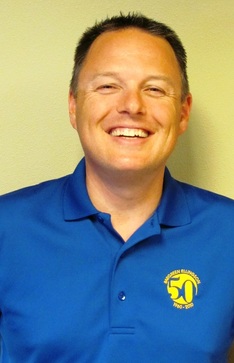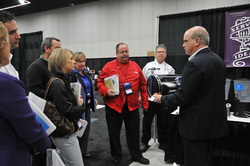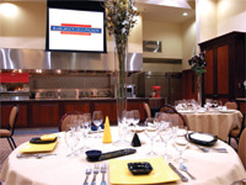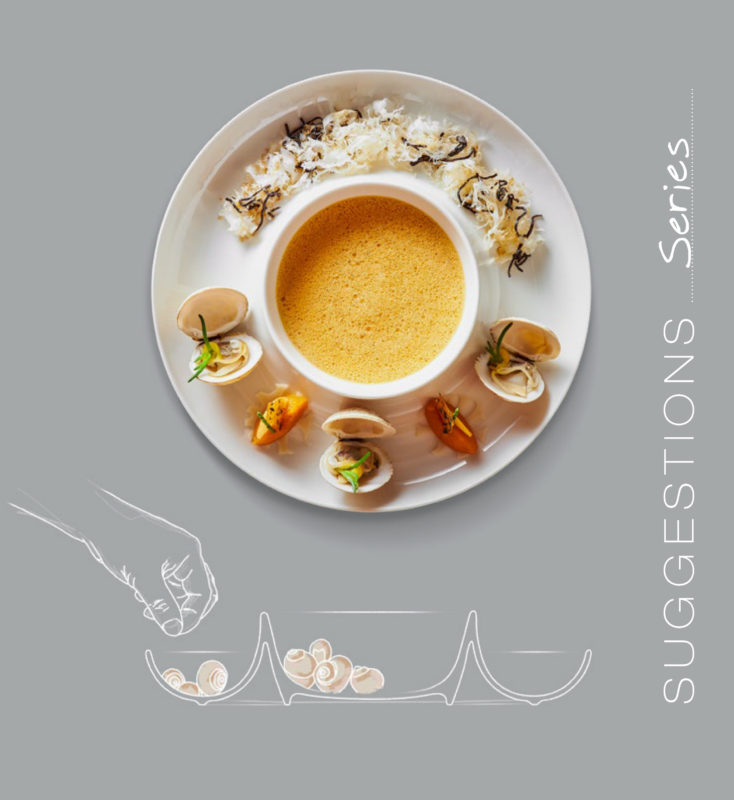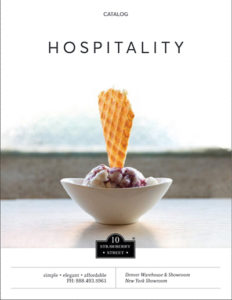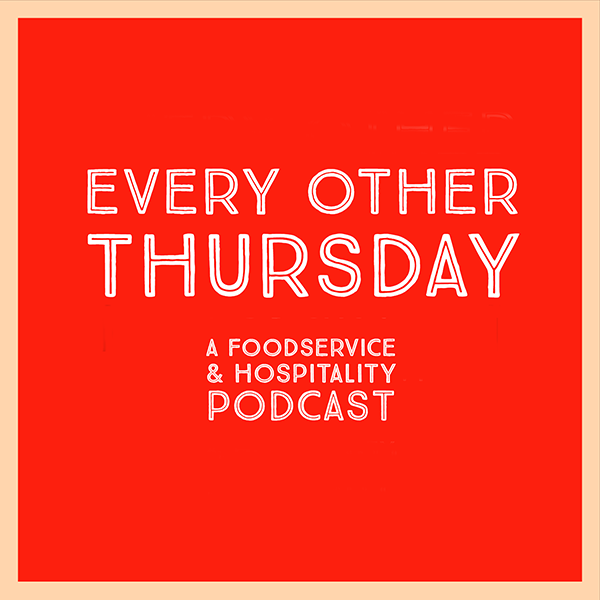Bargreen Ellingson’s Tim Irey For restaurateurs, this may a great time to be looking to buy tabletop because of the variety that is available while competition among suppliers has kept the prices low. However, for manufacturers and dealers it is a challenging time to be able to grow their top line sales and do so at a profit. So how does the tabletop leader in America’s northwest view the tabletop category?
Bargreen Ellingson is one dealer who is aggressively and creatively pursuing the tabletop category for multiple reasons. Bargreen Ellingson is an approx. $140MM dealer (according to FES Magazine list of distribution giants) headquartered in Tacoma, WA.
TabletopJournal.com recently spoke with Bargreen Ellingson’s VP, Sales, Tim Irey about the current state of the tabletop market and how Bargreen Ellingson uses tabletop to help with its branding efforts.
There’s no doubt that the tabletop category has lost its way a bit but there are a lot of factors involved,” commented Irey. “At Bargreen Ellingson, we spend a lot of time with the staff to help them decipher how we flatten out all the commoditization. We train our sales people to ask their customer questions and to help their customers understand the cost of investment vs. the cost of ownership”.
In the past several years, the types of dinnerware that Bargreen Ellingson’s customers are buying is echoing much of the rest of the country with trends going towards white, simpler china. “We used to sell a lot of personalized and decorated china, but lately I’ve even had customers say that they view china as a disposable, saying ‘It all breaks, high-end, or low-end’ so at Bargreen-Ellingson, we continue to sell a lot of white china, so having our customers understand valueis important” says Irey. When it gets to the idea of brand positioning or branding of the Bargreen Ellingson experience, Irey is clear about what makes the difference. “Sure, we have mountains of inventory, we carry thirteen thousand standard skus, we’re willing to order virtually anything and we will work with customers to set up stocking agreements,” says Irey, “But ultimately, it comes down to your staff. You have to have a terrifically educated salesforce and a wonderful operations team that works closely together.” Recognizing the value of a brand, Irey spoke at length about how hard the overall Bargreen Ellingson sales team works to protect their company’s brandname and are very protective of the company’s identity in the various marketplaces that it serves. At a time when many dealers and distributors are trying to get larger shares of the foodservice marketplace by being all things to all people and going after sales in any way they can, Irey is focusing his team’s efforts on doing what they are good at. With 18 branches in 8 northwestern states and western Canada, Bargreen Ellingsonhas just opened up its newest branch in Denver and is about to have people in Alaska, as well. “We’re making between 7-8000 sales calls per week, “ says Irey,“So, if we’re not sales rock stars and educated about china, glass, silver, linens, and how it all goes together – we’re just another ordinary dealer or distributor, standing in line to waste the restaurateur’s time.” So, how does Tim Irey and Bargreen Ellingson differentiate its tabletop efforts and develop ways to use the tabletop category as a brand positioning tool for their company? Well, one way is through the education process of their sales people. This August, Irey will have representative salespeople from each branch come to a 2-day tabletop summit meeting with key manufacturers. According to Irey, “We won’t necessarily be bringing in our ‘best’ tabletop people, but rather we’ll bring in those that might offer us the best potential to improve their particular branch.” With a “train the trainer” approach, it’s hoped that the participating salespeople will then transmit much of what they learned to their branch colleagues, along with a “playbook” and a vision for the tabletop category (ie, what types of tabletop products work well in certain types of operations, how to talk to customers who might be ‘stuck’ on undecorated china, how to talk to customers about customization or personalization, selling the guest experience).
Sounding like a man on a mission, Irey states “We’re looking to have 2 full days of breaking the category down to nuts and bolts, to see if we can get our customers to get off the commodity wagon and we can show them how tabletop can improve their guests’ overall dining experience.”
Another huge tool for separating Bargreen Ellingson from its competition are its test kitchens. “We’ve got beautiful facilities with a corporate chef which gives us the ability to engage not only our own sales staff, but our customers, as well. Bringing in manufacturers to assist with this helps both salespeople and customers learn better and gain an understanding of the overall tabletop category and they become almost ‘mini’ trade shows,” claims Irey. Bargreen Ellingson’s Portland, OR test kitchen is approximately 3000 square feet and not long ago was set up with banquet tables around the perimeter and a complete buffet line set up to help show personnel from a large Oregon B & I feeder exactly what Bargreen Ellingson was proposing for their dining facility. Using the test kitchen and this full set-up approach helped their client understand the value and turned what was originally a $50K project into a $300K project. Clearly, Bargreen Ellingson works hard at positioning themselves as the tabletop leader in the northwest.
Bargreen Ellingson also uses their test kitchens to further differentiate themselves from competitors by showcasing their in-house woodshop and metal fabrication shop. These two in-house resources to build tables and countertops allow Irey to show a potential customer exactly what his team’s vision is for each of their restaurant customers. Such custom fabrication allows Bargreen Ellingson to also offer a complete package beyond the tabletop to their customers. The first of three test kitchens opened in the headquarters Tacoma branch in 2003 and according to Irey, gets used in 3 distinct ways to help positionBargreen Ellingson as both and industry and community leader.
· Educate Customers: using a “try it before you buy” approach, chefs are able to try out equipment, tabletop products, and all types of smallwares; some chefs also utilize the test kitchen for menu development concepts if their kitchen isn’t ready yet on new restaurants or if they don’t have the right type of facility;
· Staff Training: the up to date communications set up allows presentations done in the Tacoma test kitchen to be broadcast out to all branches making it very efficient for internal seminars and manufacturers to make sales presentations to the Bargreen Ellingson sales force;
· Community Development: Bargreen Ellingson, while being sensitive to not compete with its customers, sometimes donates the space to charitable local organizations;
Seattle and Portland branches also have test kitchens with each being a little unique in their layout causing each to be used slightly differently, giving the company maximum flexibility. Given their success, company executives would like to expand the idea of test kitchens to possibly Denver or Vancouver, BC in the future.
A final component to the branding building of Bargreen Ellingson is, according to Irey, is realizing what you are good at. “Being truly honest to yourself and your organization is critical. Finding that ‘sweetspot’ for your company and not trying to be all things to all people is very important,” says Irey. The example that Irey cites is that while Bargreen Ellingson does a nice business with national chains, its skills and philosophy really play well with independent and regional operators where building person-to-person relationships truly matter. The Bargreen Ellingson customer relationship difference is often the help in understanding and solving customer problems that Irey’s staff provides.
“For instance, we don’t build a relationship with owner Tom Douglas’ restaurants in Seattle – we build it with Tom himself. Andy Juhl, who calls on Tom works with our Seattle branch G.M. Jeff Gentling, and Jeff Winter our contract sales guy helps build Tom’s restaurants. And, of course, we have our great operational machine behind them and it all works to create a great overall relationship,” says Irey. While Irey doesn’t feel that you have the same ability to develop those kind of deep, strong relationships with chain restaurants, he says they do work with chains in each of their branches. Using their relationship building skills and then backing those relationships up operationally is clearly a major point of differentiation for Bargreen Ellingson. With their people trained to do whatever it takes for the customer – above all costs for the customer, it’s easy to understand why Bargreen is so strong with independents and other operator where understanding needs and providing solutions are keys. All this reinforces the Tim’s earlier comments about his organization being the defining point of difference between Bargreen Ellingson and its competitors.
Tim Irey also believes that tabletop product companies are changing and becoming much more brand conscious. “With dinnerware brands sometimes getting their products from the same factories – and sometimes even coming from the same production lines – these companies need to become marketing machines,”concludes Irey. Strong branding efforts from manufacturers is critical to helping trend toward higher margin levels and reducing the emphasis on price alone as the primary selling feature.
With respect to the branding and brand positioning of the Bargreen Ellingson brand, Irey contends that it is a continuing effort. “We sure are trying hard. It’s not perfect, but we have a vision going forward and we are constantly trying to re-invent. Not necessarily go away from our roots, but continuing to course-correct as we move forward.” With customers in such diverse markets as Billings, Montana and Portland, Oregon, Bargreen Ellingson keeps the customer always at the center of its focus. “Helping customers realize that, through our actions, we want to be an extension of their own business – to view our staff as an extension of their staff – is our goal.”
With a customer centric approach, backed by such operational tools as test kitchens, in-house construction shops, strong inventories, and a clear vision for the future, it becomes easy to understand how Tim Irey and the team at Bargreen Ellingson have differentiated themselves and are the market leaders in restaurant tabletop and beyond in America’s northwest.
About Tim Irey
Born and raised in the Pacific Northwest, Tim Irey has been a territory salesman in Bellevue, Washington, a branch general manager in Portland, Oregon and Vice President of Sales for the past eight years all while working for Bargreen Ellingson during his 15 year career. He is married to Heather with two wonderful children. Irey is an avid cyclist and is passionate about customer service.

